Let’s take the windy, windy road. My dove dove fast. Bass like bass.
What’s going on with these sentences?
No idea?
Then keep reading and discover the mad world of heteronyms!
1. Close
Meaning 1 — (verb) the opposite of “open”
/kləʊz/
Sure — we all learned this one ages ago, right?
“Can you open the window?”
“Can you close the door?”
All those phrases your teacher liked using all the time because they were pretty much the only phrases she could use with you in the classroom.
“Close” — you know what it means!
Meaning 2 — (adjective) the same as “near”
/kləʊs/
This one means “near.”
The main difference is that “near” is usually physical, while “close” can also be used for abstract things, for example:
“He’s a close friend.”
“She’s getting too close to the truth. We must kill her!”
Example with both words together
“Let’s close the windows — the storm’s getting really close now.”
2. Desert
Meaning 1 — (noun) the place with lots of sand and little water and loads of camels and stuff
/ˈdezə(r)t/
The desert!
Lots of sand.
And sometimes skeletons of camels.
And occasionally an oasis! If you’re lucky.
We know this one, right?
Meaning 2 — (verb) to leave a person or a place when they need your help
/dɪˈzɜː(r)t/
People react to difficult situations in different ways.
Some people stay and try and deal with it.
And some people feel it’s easier to just run away.
This verb is usually used in a negative way.
A husband can desert his wife and kids.
Or a city can be deserted after a volcano threat.
People who run away from the army are often called “deserters.”
That sort of thing.
Example with both words together
They decided to desert their village and ran off into the desert never to be seen again.
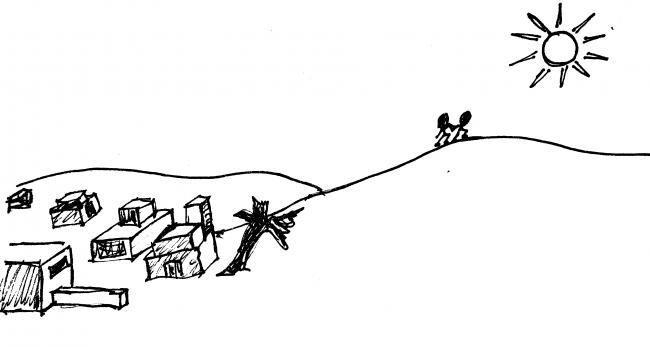
3. Bass
Meaning 1 — (noun) the low sounds
/beɪs/
Make sure you get good headphones and not those cheap ones that dodgy Keith is selling from his stall outside the station.
If you buy headphones from Dodgy Keith, you’ll never hear the bass — the low frequencies.
Meaning 2 — (noun) a particular type of sea fish (with an ugly face)
/bæs/
It’s a fish!
It lives in the sea, and like many fish, it’s very ugly!
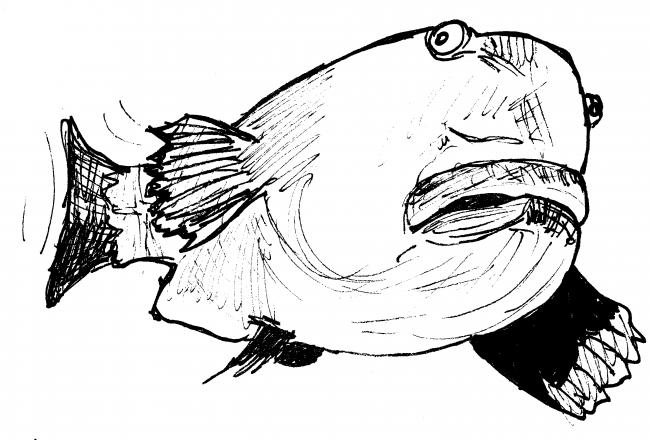
Example with both words together
The massive bass frequencies let off by the Bond villain’s super submarine made all the bass in a 3-kilometre range start swimming upside down.
4. Dove
Meaning 1 — (noun) A bird … usually used to represent peace
/dʌv/
We’ve all seen this before, right?
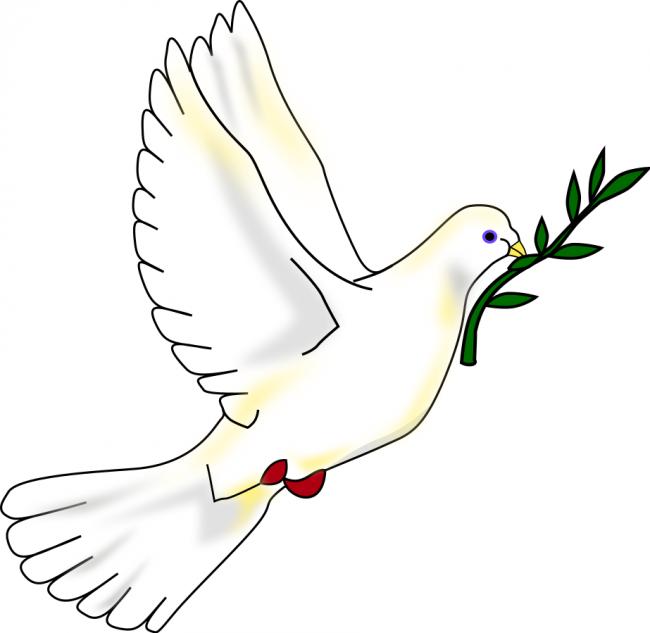
There! The bird that symbolises peace — that’s a dove.
Meaning 2 — (verb) the past tense of “dive”
/dəʊv/
Diving!
We usually associate this action with jumping into water.
But it basically means going downwards quickly into, through or at something.
So you can dive into the water.
But you can also dive through the air when you go skydiving.
And the past tense of “dive”?
Yep — it’s “dove.”
Example with both words together
The dove dove through the air like a missile on a mission.
5. Lead
Meaning 1 — (verb) to control or manage a group of people
/liːd/
We know this one, right?
It’s where we get the word “leader.”
If you lead, you’re in control — you’re deciding which direction to take and making the tough decisions.
Meaning 2 — (noun) a type of metal
/led/
Lead was often used in pencils before they realised that it’s actually quite harmful and might make your ears fall off … or something like that. I can’t quite remember.
Now they use graphite instead.
Apparently, lead is still used in batteries and bullets.
That’s where we get the phrase “Eat lead!” meaning “I’m about to shoot you.”
Example with both words together
The guide was supposed to lead us to the biggest waterfall in the country but we ended up at a lead mine.
6. Object
Meaning 1 — (noun) a thing
/ˈɒbdʒekt/
This means something physical — something you can touch or hold.
It can be anything.
A table is an object.
The key in my pocket is an object.
That giant doughnut you ate at 2 am last night is an object.
Well, it was until you ate it.
Meaning 2 — (verb) to express opposition to something
/əbˈdʒekt/
Have you ever watched any courtroom dramas?
You know — those films that almost completely take place during a trial with smart lawyers and evil judges?
Sometimes the lawyer we like is questioning a witness when the lawyer we don’t like suddenly interrupts.
“Objection!” he says.
Well — the lawyer we don’t like is basically saying, “I have a problem with what this lawyer is saying!”
So “to object” means to express disapproval or disagreement.
Example with both words together
I really object to the way that you’re holding that object. Stop it! It’s making me feel very uncomfortable.
7. Polish
Meaning 1 — (verb, noun) to rub something in order to make it shiny
/ˈpɒlɪʃ/
Is there anything in life better than a big, oak table?
Yes! Yes, there is!
A shiny, big, oak table.
But how do you keep your oak table shiny?
By using polish of course! Then taking the polish and polishing the table with it.
Meaning 2 — a person from Poland
/ˈpəʊlɪʃ/
Meet Grzegorz.

He’s from Poland.
He’s Polish.
Example with both words together
And when you’ve finished with the washing, can you go and polish the Polish furniture in the drawing room?
8. Bow
Meaning 1 — (noun) a ribbon or string tied into a shape with two circular bits
/bəʊ/
Ok. That was difficult to describe. So here’s a picture:
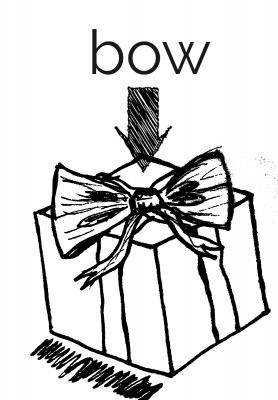
We see them on presents.
We see them in people’s hair.
We see them on dresses and shirts.
Meaning 2 — (verb) to bend forwards as a sign of respect
/baʊ/
It’s interesting how cultures are different.
In some countries, when we meet someone, it’s typical to just shake hands.
In others, when we meet someone, we don’t shake hands. We bow.
Examples with both words together
After that, Eric is going to give the Queen a massive box wrapped up in a bow, then bow deeply.
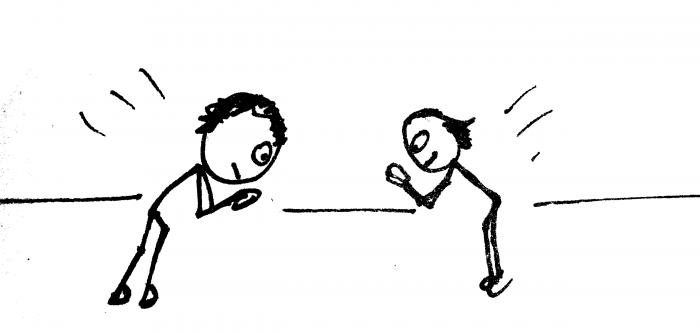
9. Tear
Meaning 1 — (verb) to pull a piece of material apart
/teə(r)/
Again, not an easy one to describe.
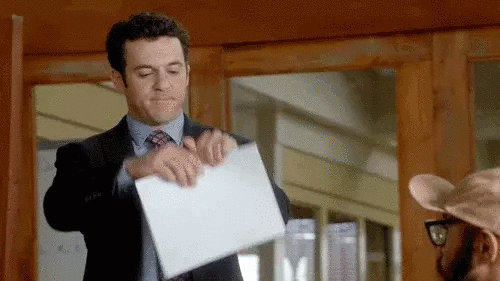
Meaning 2 — (noun) the water that comes out of your eye when you cry
/tɪə(r)/
Isn’t it weird how water comes out of your face when you cry?
Seriously — stop and think about that for a second.
Weird, isn’t it?
Example with both words together
With a tear in her eye, she decided to tear up all the letters she’d got from Brett. She finally realised the truth: How on Earth could she possibly marry a man with a name like Brett?
10. Windy
Meaning 1 — (adjective) lots of wind
/ˈwɪndi/
You know this one.
Weather that makes leaves fall off trees and your hat fall off your head.
Meaning 2 — (adjective) a curving or twisting road, path or river
/ˈwaɪndi/
Some roads are nice and straight, like the old Roman ones.
But some roads are windy — they go left, then right, then left again — like the roads in the countryside:

Example with both words together
It was getting more and more difficult to cycle along the windy road as the weather picked up and it got even more windy.
11. Live
Meaning 1 — (verb) to not be dead
/lɪv/
So this word technically means the opposite of “die.”
But to be fair, we usually use it to talk about where our house or flat is.
Meaning 2 — (adjective) a performance or show that is being performed as we watch it
/laɪv/
Some TV shows are recorded first, then put on the TV later.
But sometimes we watch the show at the same time as it’s being performed.
We can also talk about live music, meaning a band or a musician in concert and not recorded.
In the ’90s I had a Guns N’ Roses CD called “Live in Paris.”
For ages I thought that Guns N’ Roses were recommending a good city to live in.
Example with both words together
I’d like to live somewhere where I can see live music every night of the week. Like Melbourne.
12. Wound
Meaning 1 — (noun) a damaged part of the body, usually with broken or cut skin
/wuːnd/
Let’s not spend too much time on this one.
To put it short, if you cut yourself, fall off your bike, or have a fight with a dragon, you’ll probably end up with a wound.
Then you might need to use a bandage, which brings me to …
Meaning 2 — (adjective, past participle) wrapped around something
/waʊnd/
Remember “windy”? The one that means “not straight”?
“Wound” is the past participle of “wind,” which also makes it an adjective.
For example, imagine that yesterday you came across this scene during your morning walk:
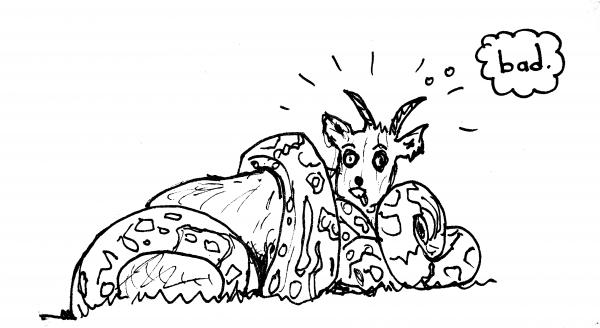
Yep — that snake definitely wound itself around that goat.
Quite normal during a morning walk, though, right? If you live in Belize.
Or a zoo.
Example with both words together
She expertly wound the bandage around the wound.
You made it to the end!
So now you know the differences between the bow in your hair and the bow you do when you meet your Japanese business partners.
And you now know whether to check whether the guide book is telling you that the seaside path has strong weather, or whether it’s just not straight.
Great work!
Did you enjoy reading this post?
If so, you might also like the following articles.
- 10 Contronyms
- 11 Retronyms
- 12 Meronyms
- 13 Eponyms
- 15 Heterographs
- 16 Capitonyms
- 36 Acronyms
- Exonyms & Endonyms
Gabriel Clark, LOS Consultant & Clark and Miller Co-founder